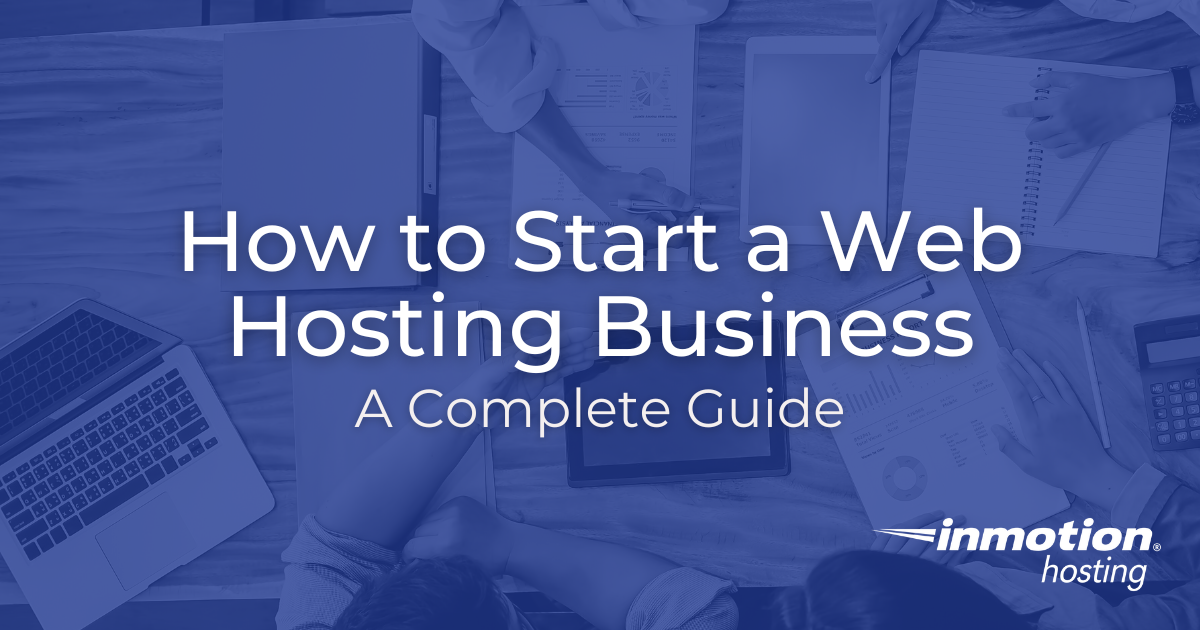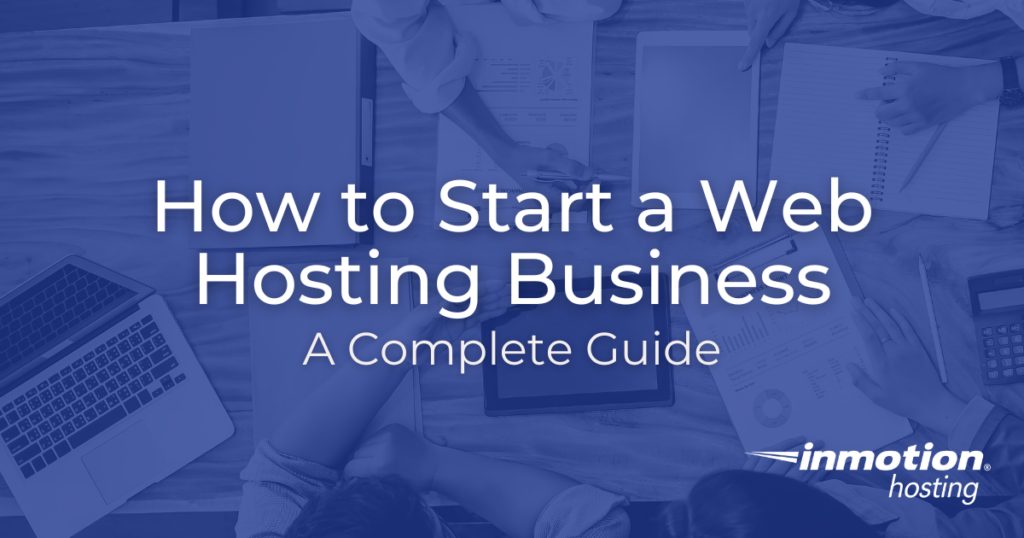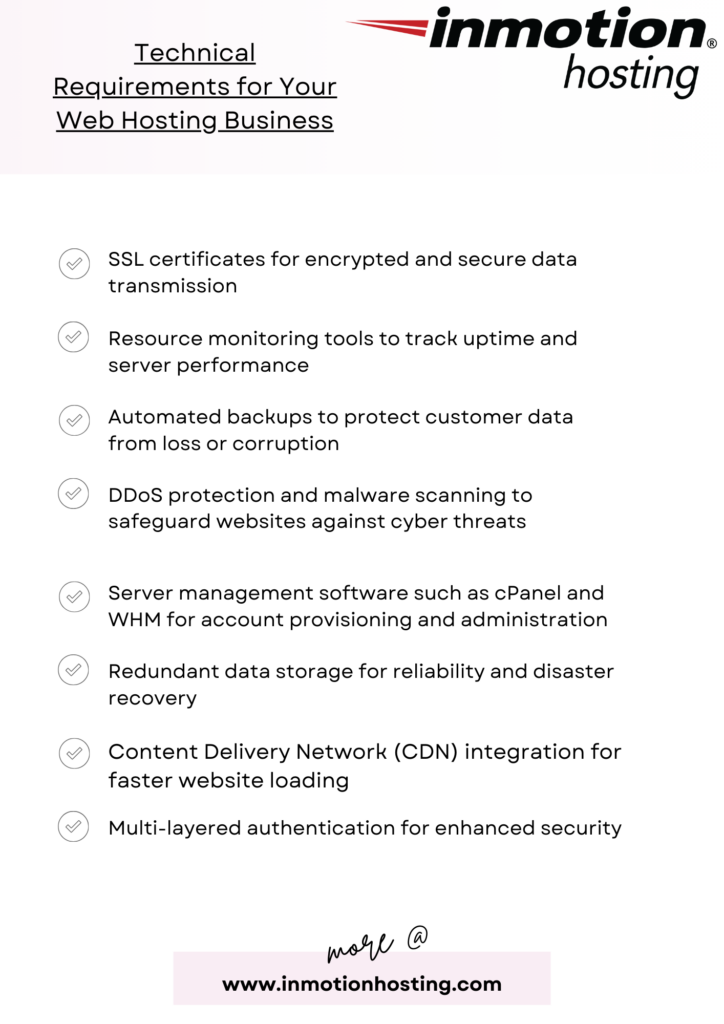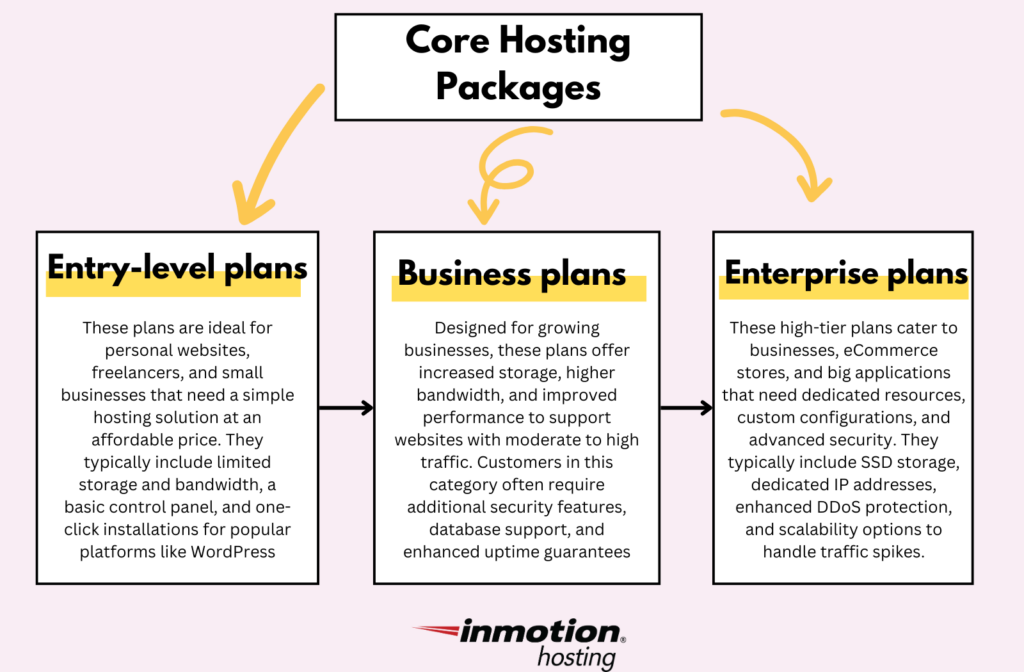
How to Start a Web Hosting Business

10,500 new websites are created every hour. Three, every second. About 1,700 by the time you’re done reading this article.
Whether you’re a developer looking to monetize your skills or an entrepreneur hunting for a new business opportunity, starting a web hosting business offers serious revenue potential.
To be successful in the business, you need to understand the different hosting business models, know how to set up your technical infrastructure, package your services, and market your offerings.
We discuss all you need to know in this guide. Don’t forget to save this in your Bookmarks for future reference.
Understanding the Web Hosting Business Model
Web hosting is the backbone of the internet, powering everything from personal blogs to enterprise-level applications. As businesses continue to prioritize their online presence, the demand for reliable hosting services keeps growing. The global web hosting market is projected to increase by $124.2 billion between 2023 and 2028, making it a growing, profitable industry for new entrants.

You can offer different hosting services, each catering to specific customer needs. Shared hosting is an entry-level solution for individuals and small businesses, while VPS (Virtual Private Server) hosting provides more control and scalability. Dedicated hosting is ideal for enterprises that need maximum performance, and cloud hosting offers flexibility by distributing resources across multiple servers.
Most new hosting businesses start by reselling hosting services rather than investing in expensive server infrastructure. Reseller hosting allows entrepreneurs to offer white-labeled hosting plans without managing complex hardware, making it one of the most accessible entry points into the industry.
InMotion Hosting’s reseller platform powers thousands of hosting businesses worldwide, enabling entrepreneurs to build profitable hosting brands with scalable solutions, automation tools, and expert support.
Understanding these business models and choosing the right approach is the first step toward launching a successful hosting business.
Essential Steps to Launch Your Hosting Business
Follow these steps to successfully start a domain hosting business:
Choose Your Business Model
Every web hosting business starts with a decision: reseller hosting or dedicated infrastructure. Reseller hosting allows you to offer hosting services under your brand without managing hardware, while dedicated infrastructure gives you full control over server management but requires significant investment.
Reseller hosting provides a lower upfront cost and faster time to market compared to setting up and maintaining your servers. In contrast, managing dedicated infrastructure requires investment in physical or cloud-based servers, along with technical expertise to handle maintenance, security, and software updates.
From a return-on-investment perspective, reseller hosting offers faster profitability with predictable costs. Dedicated hosting may generate higher margins over time but involves higher capital expenditure and ongoing maintenance costs.
Pro Tip: InMotion Hosting’s reseller plans include white-label solutions that let you build your brand while leveraging enterprise-grade hosting infrastructure.
Technical Requirements and Setup
Setting up your hosting infrastructure requires reliable servers, management tools, and security protocols. The key components include:
1. SSL Certificates for Encrypted and Secure Data Transmission
SSL certificates ensure that data exchanged between websites and visitors is encrypted, protecting sensitive information like login credentials and payment details. Offering free and premium SSL options can add value to your hosting plans.
2. Resource Monitoring Tools to Track Uptime and Server Performance
Real-time monitoring solutions help you detect performance issues before they affect customers. Tools like Nagios and Zabbix provide insights into CPU usage, bandwidth consumption, and overall server health.
3. Automated Backups to Protect Customer Data from Loss or Corruption
Regular backups ensure that website data can be restored in case of accidental deletion, system failures, or cyberattacks. Hosting businesses should offer daily or weekly backups with easy restoration options.
Learn more tips and tricks about WordPress backups to protect your website from risks!
4. DDoS Protection and Malware Scanning to Safeguard Websites Against Cyber Threats
Distributed Denial-of-Service (DDoS) attacks can overwhelm servers and cause downtime. Integrating firewalls, traffic filtering, and automated malware scanning helps mitigate these risks and keep customer websites secure.
5. Server Management Software Such as cPanel and WHM for Account Provisioning and Administration
A control panel simplifies hosting account management, allowing customers to manage domains, emails, databases, and files easily. WHM (Web Host Manager) helps resellers allocate resources and customize plans.
6. Redundant Data Storage for Reliability and Disaster Recovery
Using RAID storage or cloud-based redundancy prevents data loss and ensures continuous service availability in case of hardware failures.
7. Content Delivery Network (CDN) Integration for Faster Website Loading
CDNs distribute website content across multiple servers worldwide, reducing latency and improving page speed for global visitors.
8. Scalable Hosting Infrastructure to Accommodate Business Growth
A flexible infrastructure with scalable resources allows hosting businesses to expand storage, processing power, and bandwidth as customer demand increases.
9. Multi-Layered Authentication for Enhanced Security
Implementing two-factor authentication (2FA) and IP-based access restrictions adds an extra layer of security for customer accounts and control panel logins.
10. Compliance with Industry Standards and Regulations
Hosting businesses handling customer data must comply with GDPR, PCI DSS (for eCommerce sites), and other security regulations to ensure trust and legal protection.

A well-structured hosting setup ensures performance, reliability, and security, which amounts to a hassle-free experience for your clients. A well-structured hosting setup ensures performance, reliability, and security which sums up to a hassle-free experience for your clients.
Create Your Service Offerings
Core Hosting Packages
Offering a range of plans allows customers to choose a solution that matches their specific needs while giving your business opportunities for upselling and long-term customer retention.

Entry-Level Plans:
These plans are ideal for personal websites, freelancers, and small businesses that need a simple hosting solution at an affordable price. They typically include limited storage and bandwidth, a basic control panel, and one-click installations for popular platforms like WordPress.
Since cost is a primary concern for these users, offering competitive pricing and bundled features like free SSL certificates and email accounts can make your service more attractive. While margins on these plans are lower, they serve as a strong entry point, allowing customers to upgrade as their website traffic grows.
Business Plans:
Designed for growing businesses, these plans offer increased storage, higher bandwidth, and improved performance to support websites with moderate to high traffic. Customers in this category often require additional security features, database support, and enhanced uptime guarantees.
Providing automated backups, malware protection, and priority customer support can differentiate your business hosting plans from competitors. These mid-tier plans often generate the highest revenue, as businesses are willing to invest more in performance and reliability.
Premium or Enterprise Plans:
These high-tier plans cater to businesses, eCommerce stores, and large-scale applications that need dedicated resources, custom configurations, and advanced security. They typically include SSD storage, dedicated IP addresses, enhanced DDoS protection, and scalability options to handle spikes in traffic.
Since these customers rely on uptime and speed for business operations, offering a service level agreement (SLA) with guaranteed performance and premium customer support can add significant value. These plans have higher margins and longer customer retention, making them a crucial part of a hosting provider’s revenue model.
A well-structured hosting package lineup ensures that customers can start small and scale as their needs grow, while also allowing you to serve a diverse range of clients effectively.
Value-Added Services
Beyond hosting, offering additional services increases revenue and enhances customer retention. Common value-adding services include:
- Website development services
- Website migration services
- Email hosting solutions
- Domain management
Expanding your service offerings ensures that customers find value in your platform, increasing retention and revenue opportunities.
Essential Technical Infrastructure
Core Infrastructure Components
A reliable hosting business depends on a robust and scalable infrastructure to ensure high performance, uptime, and security. Your core infrastructure should include:
- Server Architecture and Scalability: Choose between shared, VPS, dedicated, or cloud hosting environments based on your business model. Scalability ensures you can expand resources as customer demand grows.
- Backup Systems and Disaster Recovery: Automated daily backups and offsite storage solutions protect client data against accidental loss or cyber threats. A solid disaster recovery plan ensures minimal downtime in case of failures.
- Monitoring and Alerting Systems: Real-time server monitoring tools help track resource usage, detect performance issues, and alert administrators before problems affect customers.
- Data Center Considerations: Hosting providers with multiple data centers offer better redundancy, uptime, and global reach.
Infrastructure Security
Security is a top priority in web hosting. Apply advanced security measures to protect client websites from cyber threats and ensure compliance with industry standards. Some points to keep in mind:
- DDoS protection. Distributed Denial-of-Service (DDoS) attacks can overwhelm servers, causing downtime. Using mitigation tools like firewalls, traffic filtering, and rate limiting helps safeguard infrastructure.
- Malware scanning. Automated malware detection and removal services protect websites from hacks and infections.
- SSL certificate management. Secure Sockets Layer (SSL) encryption secures data transmission between websites and visitors. Offering free or premium SSL certificates can be a key selling point.
- Server hardening. Security configurations such as disabling unused ports, applying regular updates, and implementing firewalls minimize vulnerabilities.
InMotion Hosting’s security suite includes advanced DDoS protection and real-time malware scanning, ensuring a secure hosting environment for businesses. A strong technical foundation improves reliability, enhances security, and builds trust with customers.
Managing Your Hosting Business
Client Onboarding and Support
A seamless onboarding experience and a strong support system are essential for retaining customers. Set clear expectations and provide accessible resources to help clients get started quickly and confidently.
- Creating Service Level Agreements (SLAs): Clearly define uptime guarantees, response times, and support scope. Transparent SLAs build trust and set expectations for service quality.
- Support System Setup: Offer multiple support channels such as live chat, email, and phone to assist clients efficiently. Implementing a ticketing system helps track and resolve customer issues promptly.
- Documentation and Knowledge Base: Providing self-service resources, including setup guides, FAQs, and troubleshooting articles, reduces support workload and empowers customers.
Operations and Billing
Efficient operations and billing management streamline your business and improve customer satisfaction.
- Automation Tools: Automating account provisioning, server monitoring, and backups saves time and reduces manual errors.
- Billing Systems: A reliable billing platform handles invoices, recurring payments, and customer account management. Popular solutions include WHMCS and Blesta.
- Resource Monitoring: Tracking server performance, bandwidth usage, and disk space helps optimize resources and prevent downtime.
- Backup Solutions: Regular automated backups ensure customer data is protected and can be restored in case of system failures or cyberattacks.
Managing these aspects effectively helps you run a smooth, scalable hosting business while maintaining high service quality.
Marketing Your Hosting Business
Identifying Your Target Market
Defining your ideal customers helps you position your hosting business effectively and attract the right clients. Consider these three critical elements:
- Ideal Client Profiles: Your ICPs are those groups of people you want your business to serve the most. Small businesses, eCommerce store owners, agencies, and developers often seek reliable hosting solutions.
- Market positioning: Highlight unique selling points such as superior performance, security features, or specialized hosting solutions for specific industries.
- Competitive differentiation: Stand out by offering better customer support, additional features like website migration, or tailored hosting plans that address specific needs.
Marketing Strategies
A strong marketing strategy is essential for attracting customers and driving business growth. Digital marketing tactics like SEO, paid ads, and social media marketing help increase visibility and bring in potential clients actively searching for hosting solutions.
Optimizing website content for relevant keywords improves organic search rankings, while targeted ads can generate immediate traffic.
Likewise, social media platforms provide an opportunity to engage with potential customers, share industry insights, and promote special offers.
Content marketing further strengthens credibility by publishing blogs, tutorials, and case studies that educate customers about web hosting. High-quality content positions your brand as an authority in the industry while addressing common questions and concerns.
Additionally, forming partnerships with web developers, agencies, and IT consultants creates referral opportunities, allowing you to tap into an existing customer base.
In short, a well-executed marketing strategy ensures steady lead generation, builds brand recognition, and lays the foundation for long-term business success.
Scaling Your Hosting Business
Once your hosting business gains traction, scaling becomes the next priority. Growth requires a balance between expanding services, upgrading infrastructure, and building a team to support increasing demand.
- Expanding Service Offerings: Diversify your services to attract new customers and increase revenue from existing ones. Consider offering managed hosting, premium support plans, performance optimization, or specialized hosting for industries like eCommerce or SaaS businesses. Complementary services like website design, SEO consulting, or security monitoring offer additional income streams.
- Infrastructure Scaling: As your customer base grows, your hosting infrastructure must keep up with traffic and resource demands. This may mean upgrading to more powerful servers, optimizing storage, or transitioning to flexible cloud-based hosting. Load balancing, automated backups, and redundant systems help maintain high availability and reliability, ensuring a seamless customer experience.
- Team Building: Expanding operations means hiring technical support staff, system administrators, and marketing specialists to manage growth effectively. A strong support team enhances customer satisfaction, while a dedicated marketing team can refine your outreach strategy to attract more clients. Document internal processes and automate routine tasks to maintain efficiency as the business scales.
Scaling your hosting business requires strategic planning and investment, but with the right approach, it opens the door to long-term profitability and sustained growth.
Conclusion
You’ve learned how to start a web hosting business. You know that it presents a lucrative opportunity.
But remember: Success depends on careful planning, the right infrastructure, and a strong marketing strategy.
When you’re ready to launch your hosting business: explore our dedicated server reseller plans or cloud hosting reseller plans. Both provide you with the white-label solutions, automation tools, and expert support needed to build and scale a successful hosting brand.
Looking to go with another brand? Compare our hosting reseller packages to learn why InMotion Hosting is the right choice for you.
By implementing the tips and strategies in this guide, you will be on your way to entrepreneurial success in the web hosting industry. Good luck!
Sell hosting using your own brand with a powerful Reseller Hosting plan, now with more resources and faster storage using NVMe SSDs at no extra cost.
Reliable Infrastructure
User-Friendly Tools
Custom Branding
Exceptional Support
Reseller Hosting Plans







